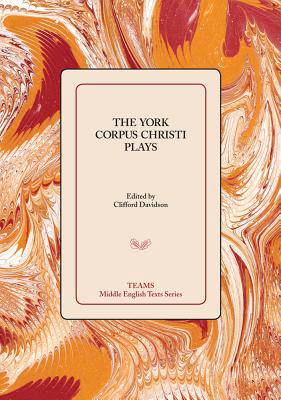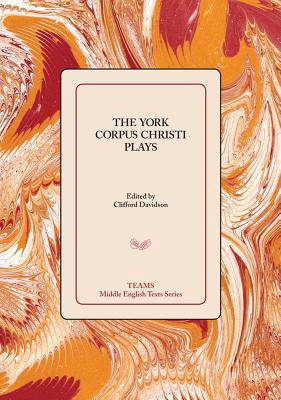
Bedankt voor het vertrouwen het afgelopen jaar! Om jou te bedanken bieden we GRATIS verzending (in België) aan op alles gedurende de hele maand januari.
- Afhalen na 1 uur in een winkel met voorraad
- In januari gratis thuislevering in België
- Ruim aanbod met 7 miljoen producten
Bedankt voor het vertrouwen het afgelopen jaar! Om jou te bedanken bieden we GRATIS verzending (in België) aan op alles gedurende de hele maand januari.
- Afhalen na 1 uur in een winkel met voorraad
- In januari gratis thuislevering in België
- Ruim aanbod met 7 miljoen producten
Zoeken
York Corpus Christi Plays PB
€ 35,95
+ 71 punten
Omschrijving
The feast of Corpus Christi, celebrated annually on Thursday after Trinity Sunday, was devoted to the Eucharist, and the normal practice was to have solemn processions through the city with the Host, the consecrated wafer that was believed to have been transformed into the true body and blood of Jesus. In this way the "cultus Dei" thus celebrated allowed the people to venerate the Eucharistic bread in order that they might be stimulated to devotion and brought symbolically, even mystically into a relationship with the central moments of salvation history. Perhaps it is logical, therefore, that pageants and plays were introduced in order to access yet another way of visualizing and participating in those events. Thus the "invisible things" of the divine order "from the creation of the world" might be displayed. The York Corpus Christi Plays, contained in London, British Library, MS. Add. 35290 and comprising more than thirteen thousand lines of verse, actually represent a unique survival of medieval theater. They form the only complete play cycle verifiably associated with the feast of Corpus Christi that is extant and was performed at a specific location in England.
Specificaties
Betrokkenen
- Uitgeverij:
Inhoud
- Aantal bladzijden:
- 614
- Taal:
- Engels
- Reeks:
Eigenschappen
- Productcode (EAN):
- 9781580441629
- Verschijningsdatum:
- 1/10/2011
- Uitvoering:
- Paperback
- Formaat:
- Trade paperback (VS)
- Afmetingen:
- 178 mm x 257 mm
- Gewicht:
- 1301 g

Alleen bij Standaard Boekhandel
+ 71 punten op je klantenkaart van Standaard Boekhandel
Beoordelingen
We publiceren alleen reviews die voldoen aan de voorwaarden voor reviews. Bekijk onze voorwaarden voor reviews.








